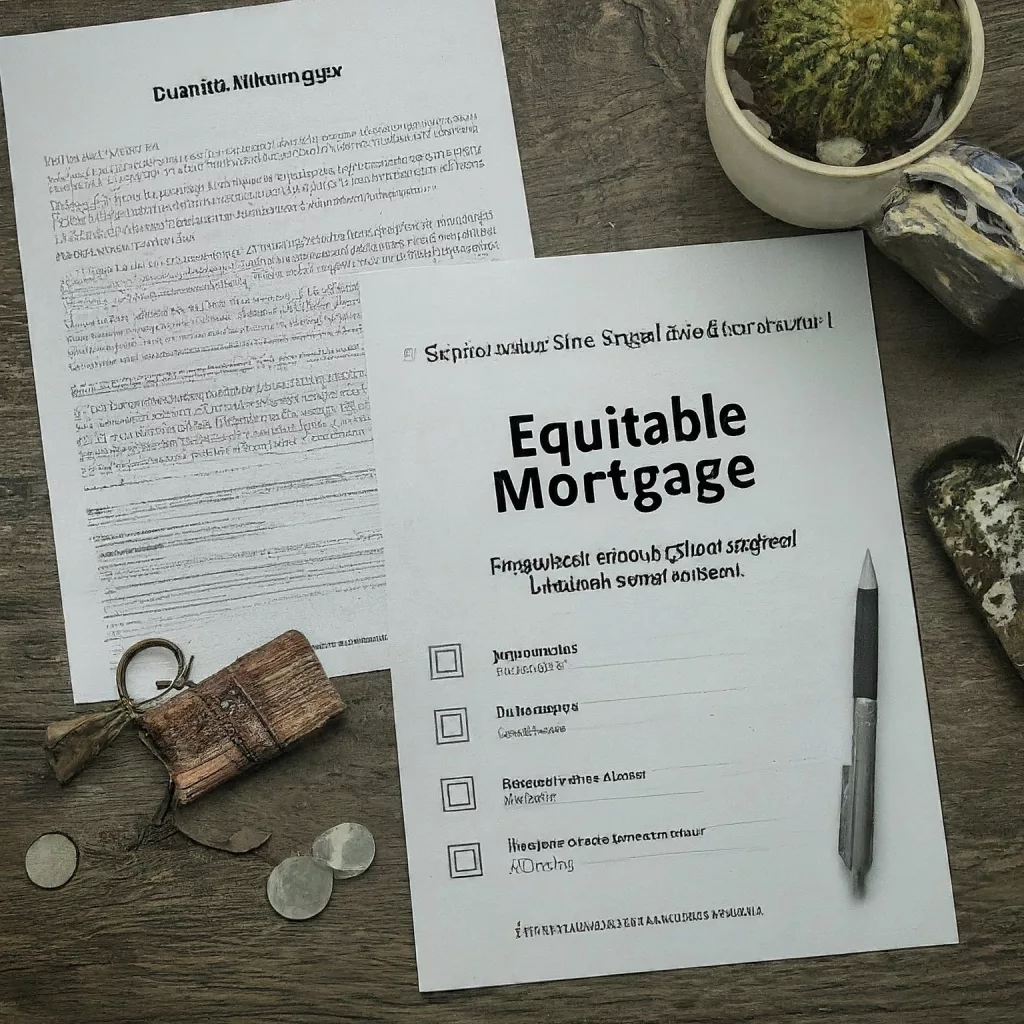Difference between Equitable Mortgage & Registered Mortgage

Individuals take mortgage loans on homes to arrange funds for a variety of purposes such as marriage, education, health, business funding, etc. The borrowed money is available at an affordable mortgage loan interest rate charged by the lender. The meaning of a Mortgage loan is to provide your property as collateral for the purpose of borrowing funds. Since it’s a secured loan, a loan against property often has the lowest interest rate among other types of loans.
However, in case of default, the lender can seize and acquire your property to recover the losses. The process is dependent upon the type of mortgage. Equitable mortgage and registered mortgage are two mortgage loan types available to a borrower. Understanding the two types of mortgage loans on homes is very important for the borrowers. Before taking a mortgage loan, the buyer must consider all the factors of eligibility, type of mortgage, mortgage loan rate, stamp duty, etc. for ease in the process.
What is a registered mortgage?
A registered mortgage is a kind of mortgage loan on vacant land or a home where the borrower voluntarily renders the bank the authority to occupy the property. It means the bank has full rights to dispose of the property in case of loan default. Under a formal written process, there is a transfer of interest by the borrower to the lender known as “Deed of Trust”. The lender can occupy the property only when the borrower makes a default. If the borrower repays the loan, the title of the property goes back to the borrower.
A registered mortgage is beneficial for the lender in certain ways-
· It protects the rights of the lender and reduces risk
· If the property is in dispute, the banks can take over the property to cover the losses
· In case of default by the borrower, the bank seizes the property
When does a borrower opt for a registered mortgage?
A registered mortgage can be taken by a borrower in certain circumstances:
a) When the original title deed is not available
b) When the property is not located in a notified town, then the borrower has to take a registered mortgage loan on the home
What is Equitable Mortgage?
Normally, when an individual takes a mortgage loan on the home, it is known as an equitable mortgage. In that case, the property documents are handed over to the lender. It remains with the lender up to the loan tenure. As soon as the loan is repaid, the property documents are handed over to the owner. Only in the case of default, the lender has the right to seize your property to cover the losses.
In mortgage loan types of this kind, the owner orally confirms to create a charge on the property. It is treated as a mortgage in the interest of justice. As the meaning of equitable justifies that the borrower acquires funds from the lender on the property which serves as collateral for the loan against property. The borrower submits his title deed to the lender. For equitable mortgage, the stamp duty and other charges are cheaper than a registered mortgage. Overall, there is no involvement of a third party in case of equitable mortgage. The terms and conditions are set and agreed upon between the two parties.
Difference between equitable mortgage and registered mortgage loan on the home
1) Bank rights- Under the equitable mortgage loan on the home, when a borrower makes a default, the bank seizes the property of the borrower. Further, the property is presented under auction.
On the other hand, under the registered mortgage, as soon as the borrower makes a default, the property is transferred to the bank.
2) Cost of mortgage – The registered mortgage is quite expensive than an equitable mortgage loan on the home. A registered mortgage involves more legal formalities and technicalities. The charges for registration are higher in case for a registered mortgage.
3) Process- In the case of an equitable mortgage loan on the home, the borrower has to pay stamp duty charges to buy the property. Recently, the government has reduced stamp duty charges for new home buyers. Under registered brokerage, the borrower has to contact the office of the sub-registrar for registration.
4) Degree of risk- Equitable mortgage loan on the home is riskier for lenders in comparison to registered mortgages. Though both mortgages offer benefits to both parties (borrowers and lenders), still banks prefer registered mortgages. It is because equitable mortgages are not recorded in the sub-registrar’s office. Here, both parties are aware of the mortgage process. There is a risk that the borrower may sell the property to a third party without repayment of the loan.
5) Third-party- For registration mortgage loan on home, there is a third-party involved for the registration of the property. Both the parties approach the sub-registrar to record the mortgage agreement. It protects the lender from any risk of dubious sale of property without notice.
Both lenders and borrowers must fulfill the requirements of the mortgage loan on home in utmost good faith. The borrowers must repay the loan within the given time without any default to avoid problems. Lenders should also ensure all the factors of eligibility and type of property before sanctioning the loan to avoid risk.








